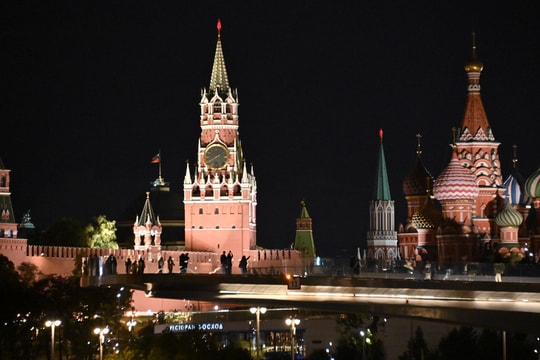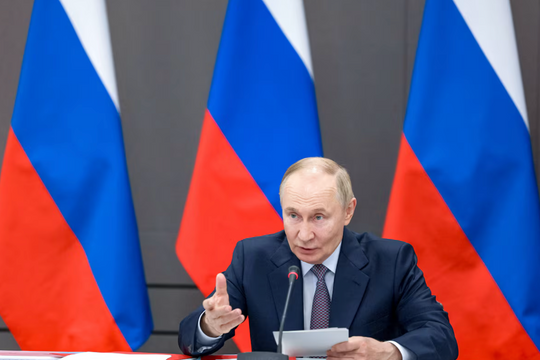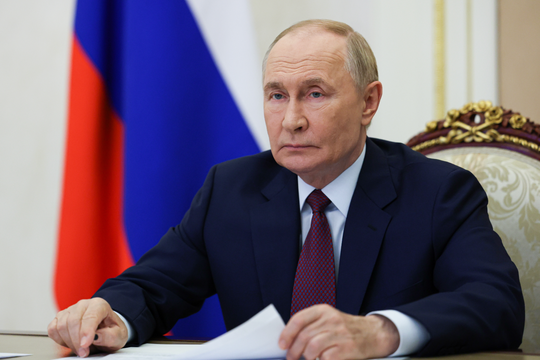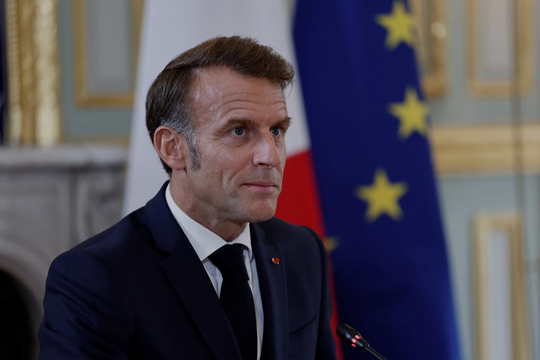Deadlock over INF: Russia - NATO tense again!
(Baonghean) - The latest negotiation efforts between Russia and the North Atlantic Treaty Organization (NATO) over the weekend did not make any progress in saving the Intermediate-Range Nuclear Forces (INF) Treaty, after Russian President Vladimir Putin signed a bill suspending the implementation of this Treaty on July 3.
To date, both sides have continued to accuse each other of violating the agreement and have warned of retaliation if the other side “takes action”. With the atmosphere becoming increasingly tense, is there really no hope of reviving the INF Treaty?
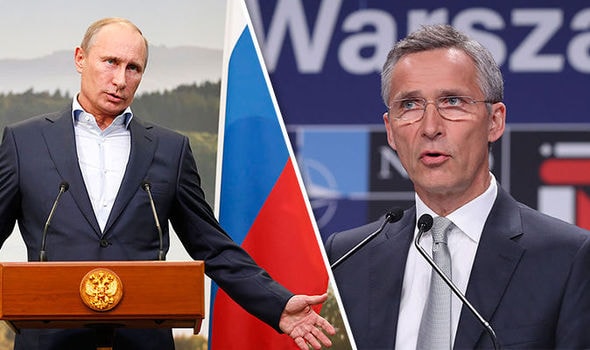 |
| Russian President Vladimir Putin and NATO Secretary General Jens Stoltenberg. Photo: Express.co.ok |
As expected, the negotiations to save the Intermediate-Range Nuclear Forces (INF) Treaty between Russian and NATO officials reached a deadlock over the weekend. NATO Secretary General Jens Stoltenberg himself admitted that there was no sign of a breakthrough and that the chances of finding a solution were “getting smaller and smaller.”
Mr. Stoltenberg also emphasized that Russia's continued violations are the only reason the INF Treaty is threatened; at the same time, he said that the INF Treaty can still be saved if Russia agrees to destroy the 9M729 medium-range weapons system - which is considered to violate the treaty.
However, up to now, Russia has denied the accusations from the US and NATO officials and said that it was the US that violated the Treaty when building the NATO missile defense system in Romania and seemed to want to resume the Cold War when planning to deploy a missile defense system in space.
In the latest statement, First Vice Chairman of the Russian Federation Council Vladimir Dzhabarov affirmed that NATO's efforts to blame Russia for the collapse of the INF are baseless.
He also warned that Russia will have appropriate responses when medium- and short-range missiles are deployed in European NATO countries.
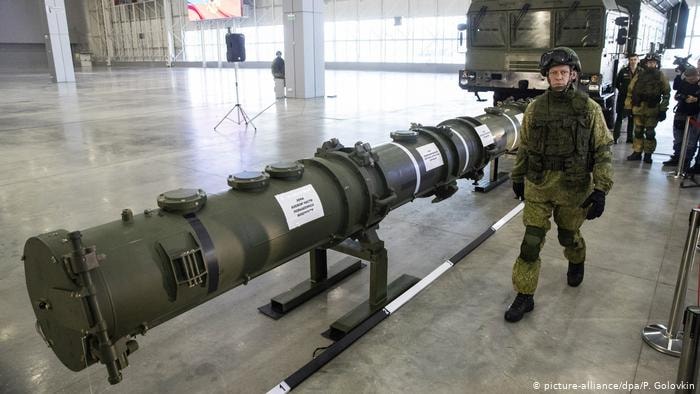 |
| Russia's 9M729 medium-range weapons system, which the US and NATO have accused of violating the INF Treaty. Photo: DW |
In the context of the stalemate that cannot be resolved, and the two sides constantly reporting to each other, Western officials are "restless" due to concerns about security risks that can explode at any time.
Concerns are justified when not only are there arguments between Russia and NATO, but there have also been notable new moves. According to European sources, NATO military officials are considering upgrading the missile defense system to "lock down" Russia's medium-range missile systems.
Meanwhile, the Black Sea is also becoming bustling as both NATO and Russia are simultaneously conducting exercises. NATO's Sea Breeze exercise is taking place from July 1-12 in the northwestern Black Sea region with the participation of both Ukraine and Georgia.
Not to be outdone, the ongoing Russian exercise involves nearly 10 warships, including the large landing ships Azov and Caesar Kunikov.
The ball is in America's court.
Returning to the INF Treaty, if there is no progress by August 2, the US is likely to officially withdraw from this agreement. It should be recalled that the US has already suspended its obligations under the INF Treaty since February 2 this year, and at the same time started the 6-month withdrawal process from this agreement.
However, it is also necessary to inform that although Russian President Putin signed the bill to suspend the implementation of the INF, Russian law also stipulates that the President has the right to resume the implementation of this Treaty.
First Deputy Chairman of the Foreign Affairs Committee of the Federation Council (Russian Senate) Vladimir Dzhabarov also affirmed that there is still time to save the situation, because President Putin has passed a law to suspend the implementation of the INF Treaty, not withdraw from the INF.
This means that at this point, the INF Treaty is in a state of “temporary freeze”. This means that there is still a chance for the parties to salvage the agreement before the August 2 deadline.
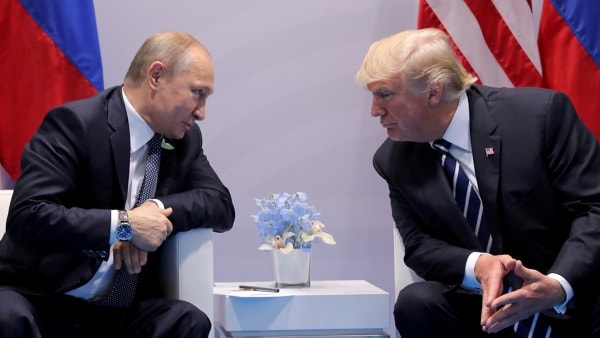 |
| US President Donald Trump is still looking for a solution to his relationship with Russian President Putin as well as the INF Treaty. Photo: Reuters |
At this time, Russian officials believe that the decision lies with the US. The Russian President also affirmed that he is not seeking an unequal race with Washington.
Because Russia has approached the US more than once, recommending that both sides resolve issues related to the INF Treaty, but has been rejected by Washington. Not only that, according to Russian officials, the US also seems not ready to discuss the extension of the New START Treaty, which will expire at the beginning of 2021.
Some say that the US government has not yet found a real solution to its relationship with Russia, in the context of having to deal with too many complicated domestic and foreign issues.
The question that President Trump has probably asked is whether to confront the big rivals China and Russia at the same time or to make peace with one side to reduce one concern? But if he makes concessions and normalizes relations with Russia, President Trump will certainly face many criticisms within the United States, which has always maintained a tough policy towards Moscow.
Therefore, in the context of the important presidential election approaching, President Trump is certainly in a dilemma, unable to make any significant decisions in relations with Russia.
However, between NATO member countries wanting to exert pressure to show toughness towards Moscow, and Russia seemingly still persisting with a policy of strategic patience - waiting for a change in the US administration, perhaps President Donald Trump will find it difficult to remain silent for too long.
A new “move” must certainly be made by Mr. Trump before the August 2 deadline - the time when the US is expected to officially withdraw from the INF Treaty agreement.
How to avoid further "tension" with Russia, but also reassure NATO members, and be able to find an acceptable solution for INF, this is certainly not an easy problem for Mr. Donald Trump in less than 1 month!

